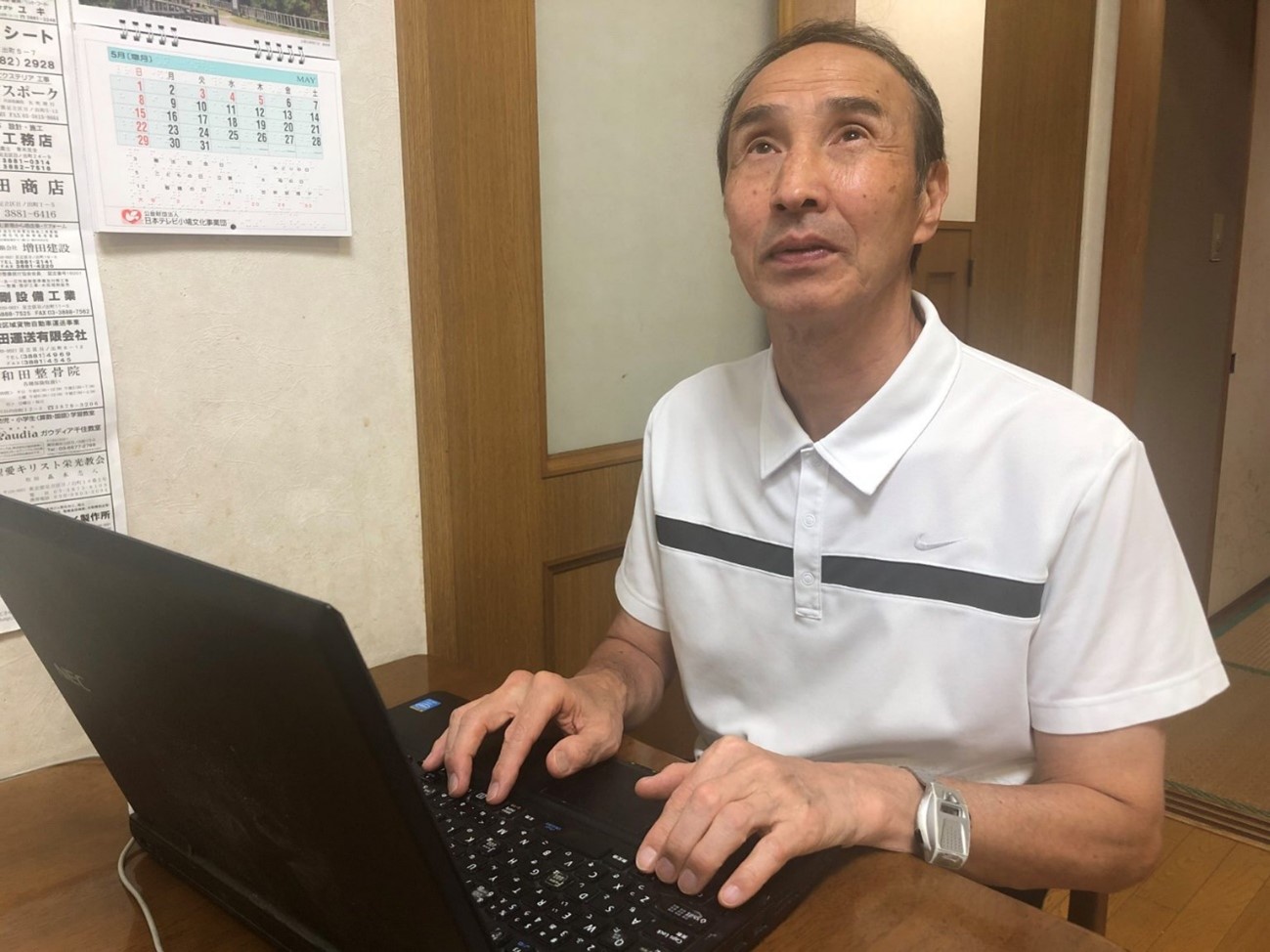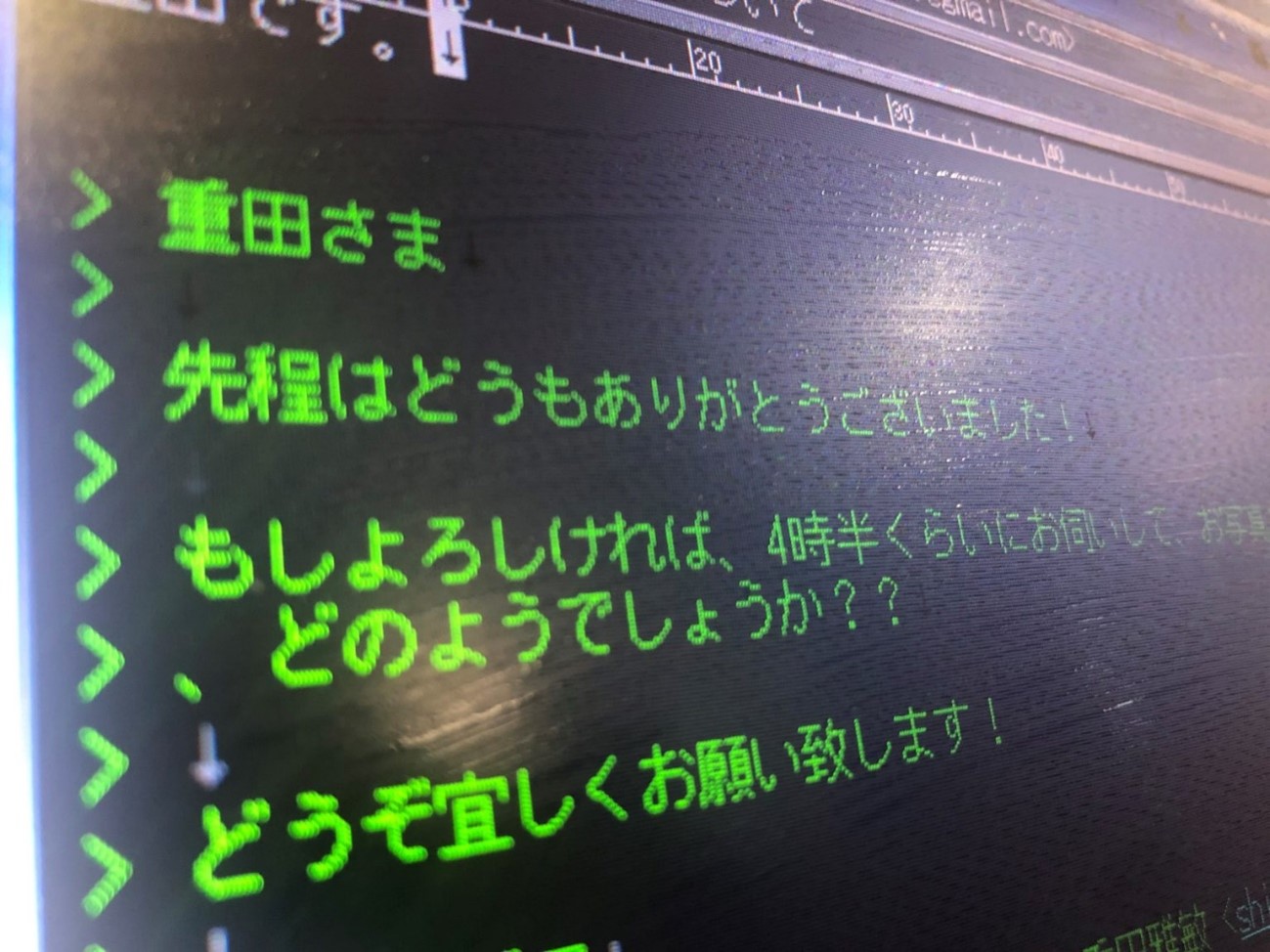Employment services for the visually impaired persons: Support from within the visually impaired community InsightsEssays: Civil Society in JapanVoices from JNPOCOther Topics
Posted on October 07, 2022
In 2018, Japan NPO Center (JNPOC) started a news & commentary site called NPO CROSS to discuss the role of NPOs/NGOs and civil society as well as social issues in Japan and abroad. We post articles contributed by various stakeholders, including NPOs, foundations, corporations, and volunteer writers.
For this JNPOC’s English site, we select some translated articles from NPO CROSS to introduce to our English-speaking readers.
Employment services for the visually impaired persons: Support from within the visually impaired community
“We hear of many cases where visually impaired persons are unable to telecommute, because accessibility for visually impaired workers has not kept pace with the rapid adoption of teleworking.”
“While teleworking has freed the visually impaired persons from the difficulties of the commute itself, in the workplace someone could help them when they need visual confirmations, but there’s no one to help them at home.”
While the work environment is changing dramatically with the spread of telework and digitization as a result of the COVID-19 pandemic, visually impaired persons have been greatly affected.
The opening comments were made by Mr. Masatoshi Shigeta, who is the president of Turtle, a nonprofit organization established in 1995 in Tokyo that supports visually impaired persons in the workplace. The active members are blind or have low vision and have faced difficulties in the workplace, and they strive to support the other members of the visually impaired community by utilizing their own experiences.
As of May 2022, Turtle has approximately 350 members, mainly visually impaired persons. The Vocational Development Center for the Blind and Low Vision in Japan (Shinjuku, Tokyo) has provided them their facility where Turtle base their operations. Turtle receives requests for consultations from all over Japan on employment issues for the visually impaired persons, provides advice according to people’s skills and vision, and connects them to appropriate organizations such as training facilities and vocational centers in various regions of Japan. Turtle engages in activities such as publicity, exchanges, and consultations, and has built up their experiences and expertise, using computers and smart phones actively.
 Mr. Shigeta demonstrating the functions of a computer customized for the visually impaired persons
Mr. Shigeta demonstrating the functions of a computer customized for the visually impaired persons
Responding to requests for consultations from all over Japan
Technologies and realities of helping the visually impaired persons
 Color inversion features
Color inversion features
Screen readers, which enable the visually impaired personsto use ICT equipment, are often utilized to read out text on the screen and to operate the computer using only a keyboard. Character magnification and black-and-white inversion functions are also widely used. Many use their own combination of software developed by different companies or choose one that fits their ICT environment. However, screen reader activation slows down the computer processing speed, which often interferes with work.
Turtle is actively conducting surveys in an effort to understand these situations. The Survey on ICT Difficulties in the Workplace, conducted between December 2020 and January 2021, analyzed 106 responses from visually impaired persons in various occupations. Of these, 84.6% experienced problems when there was “diversification of systems used in their work” and “no one close to consult with when there is a problem.” The most requested information was the “examples of ICT functions and utilization,” which reflects a wide range of real-life concerns, such as consultations on various devices (including smartphones) and text-to-speech for PDF files. Other areas that emerged to be in demand included information on screen readers, business systems, and Office operating information.
*Report of survey results (only in Japanese): http://www.turtle.gr.jp/ict/report/193/

Mr. Shigeta’s Vision for the Future
“Instead of using braille, which only visually impaired persons can use, the development of screen readers allowed us to use the same text as the sighted, and it was a breakthrough for us as office workers. Recently—thanks to Zoom—I’m also grateful that I can hold meetings and exchange information without having to go somewhere else,” Mr. Shigeta says. On the other hand, he adds, “I’m concerned that the developments in accessibility have not kept pace with the rapid ICT development itself, so the workplace environment of the visually impaired persons has been left behind when it comes to the technological advances others enjoy.”
“We’d like to communicate our issues and requests to companies and researchers developing ICT tools and devices so that the work we can do in the workplace won’t be displaced,” says Mr. Shigeta who shared his prospect for the future. “Recently, more and more visually impaired persons are using smartphones to try to keep up to date with information technology. Its screen reader function doesn’t apply to images and videos so they can only use a part of its functions, but with more advances in AI that can serve as our eyes and explain things, I believe our lives and job opportunities will be expanded even further.”
Thoughts after the interview
I was impressed that visually impaired persons are making full use of computers and smartphones to carry out their activities. ICT helps people with communication and employment, and it opens up possibilities, but I thought that we needed to ensure accessibility for a diverse population. This interview also gave me an opportunity to reflect on whether I had been giving sufficient consideration to the needs of people with disabilities. It is my hope that learning more about the realities experienced by disabled people will lead to the creation of a society that is more comfortable to live in for one and all.
Original text by Haruna Shiraogawa (JNPOC’s volunteer writer) originally posted on May 30, 2022; translated by JNPOC
Recent Articles
- Shared solutions, stronger communities: Social economy and social innovation in Europe and Japan
- NPO support for disaster victims: Key discussion points
- Beyond support: Fostering genuine dialogues
- Reconsidering the significance of public comments
- Towards a society where children want to embrace life
- The Evolution of Philanthropy: Five approaches shaping contemporary practice